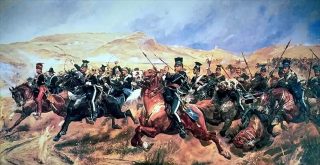
Richard Hamming makes a stunning observation in his book Learning to Learn:
“The main difference between those who go far and those who do not is some people have a vision and others do not and therefore can only react to the current events as they happen.” – Richard Hamming in Learning to Learn
It’s easier than ever to spend our time reacting to current events – just browse Facebook, scroll Twitter or bounce among your favorite news sites on your phone. The apps we use are designed to be addictive, preying on our evolutionary predilection for new information.
To break the cycle requires a clear intention and a deep conviction to move toward a vision.
Some people question whether they should spend time clarifying a personal vision when, in all likelihood, it will be off in some way. I’ve used this objection myself. As Mark Twain said, “it is difficult to make predictions, particularly about the future.” Yet, the accuracy of our personal vision is not nearly as important as having a vision. It’s much better to move intentionally in one direction than to drift aimlessly, subject to the various currents and winds.
When we’re intentional about our movement we learn what it takes to move against the current and navigate with the winds. We learn about the sacrifice required to reach certain destinations. We learn about ourselves. We determine what we truly value and what we truly want.
As we move toward our vision, there will be struggles, and we should accept them. As the Stoics say, “the obstacle is the way.” If the path toward our vision is effortless and unimpeded, we’ve chosen the wrong vision.
The true gain is in the struggle, not in the achievement.
When articulating a personal vision, consider the following:
- To serve others
- To make a contribution to humanity
- To help our communities
- To realize our full potential
- To achieve mastery
It’s up to each of us to determine our unique vision and then dedicate ourselves toward achieving it.
Reflect on it and write it down.
“The unexamined life is not worth living.” – Socrates
Sources
- The Art of Doing Science & Engineering: Learning to Learn by Richard Hamming
- Principles of Effective Research by Michael Nielsen
Related Articles
- Action this Day: How Winston Churchill Got Things Done
- Benjamin Franklin: 10 Lessons on Wisdom
- Viktor Frankl: 5 Lessons from Man’s Search for Meaning
- Ulysses S. Grant: 12 Leadership Lessons
- Lewis & Clark: 5 Leadership Lessons
- Google: 8 Most Important Qualities of Leadership
- Phil Knight: 7 Leadership Lessons from Nike
About the Author
Sean P. Murray is an author, speaker and consultant in the areas of leadership development and talent management. Learn more at RealTime Performance. He also hosts The Good Life Podcast on The Investor’s Podcast Network.
Follow Me on Twitter: @seanpmurray111


